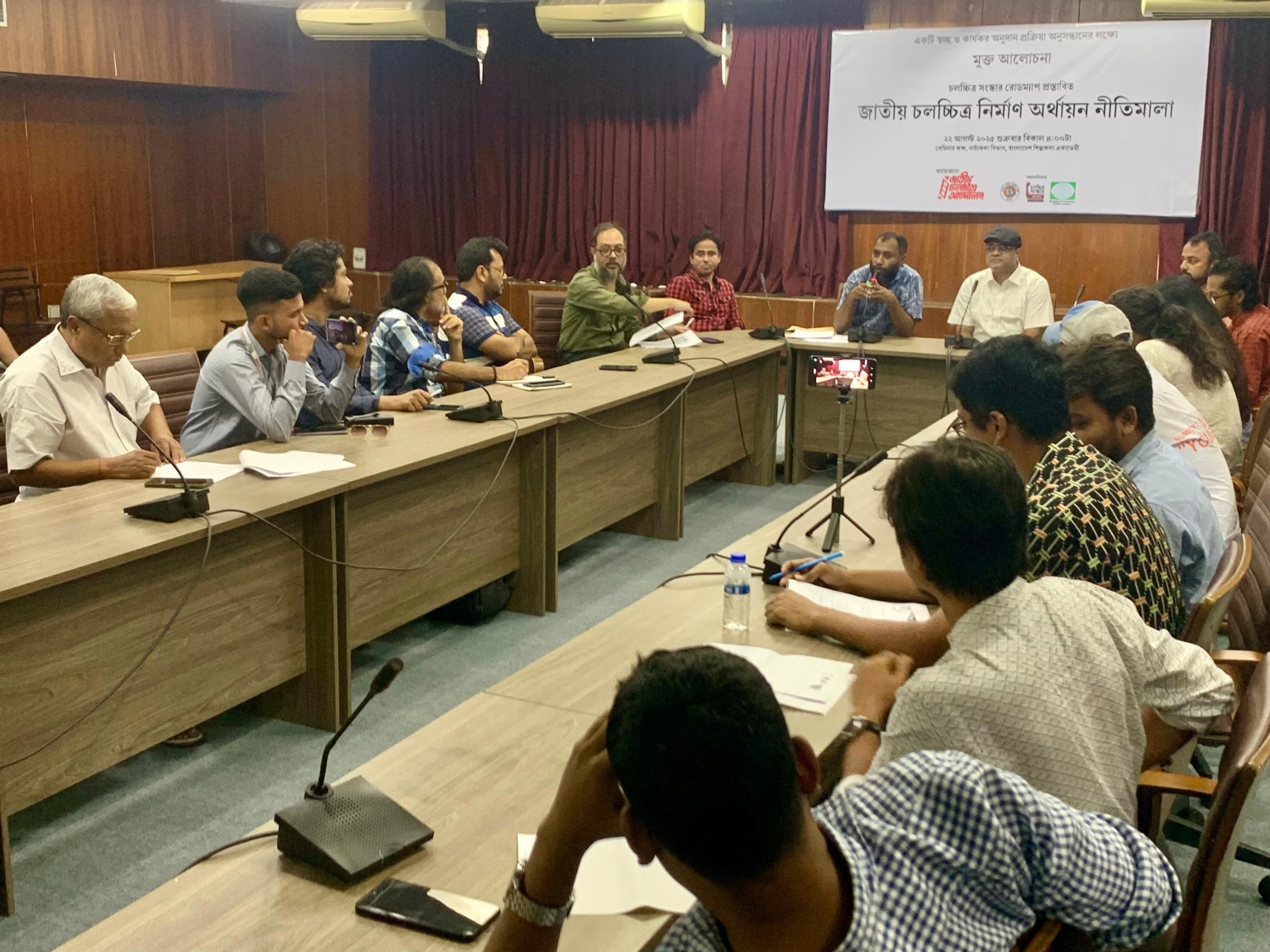Each year, the government allocates a substantial sum in film grants, yet producers have long raised objections to the process. To explore ways of making the system more transparent and effective, an open discussion on the National Film Production Financing Policy was recently held at the Shilpakala Academy.
The event, organised by the National Film Movement, brought together filmmakers, producers, exhibitors and critics. The main proposal was presented by producer Arif Sonnet.
Highlighting the importance of ensuring proper use of taxpayer-funded grants, Sonnet said, “There should be an executive producer (EP) appointed by the government, who will guide the film to a point where it performs well at the box office. Only when a film does good business will the industry gradually stand on its own feet.”
He also stressed utilising the Shilpakala Academy’s nationwide network, while criticising the opaque submission process, he said, “When we apply for a grant, we hand it to a receptionist or doorman. It’s impossible to know who actually receives it, or whether any feedback is given.”
The proposal suggested several reforms, including renaming the National Film Grant Policy, expanding funding categories and methods, restructuring grants and incentives, diversifying distribution, removing bureaucratic hurdles from the application process, revising the payment system and encouraging women filmmakers.
Participants expressed differing opinions. Director Akram Khan criticised the notion that independent films are “anti-establishment” yet still receive government grants. He also opposed merging other themes with the Liberation War category.
Director Khandaker Suman emphasised the need to clearly define what constitutes a “national film” in terms of grants. “This will allow us to understand in advance which films are eligible. It is essential that such a definition is added to the policy,” he argued.
The Exhibitors’ Association called for support not only for alternative films but also for mainstream commercial cinema, while stressing the need to depoliticise the grant process.
Advisor Sudipta Kumar Das was blunt in his criticism. “The aim of taking grant money is to lobby, spend a little and pocket the rest. These are not films, these are grant projects.”
The organisers reaffirmed their commitment to continuing the reform process for the development of Bangladesh’s film industry. Members of the National Film Movement and Film Reform Road Map pledged to work consistently towards meaningful change in the sector.


